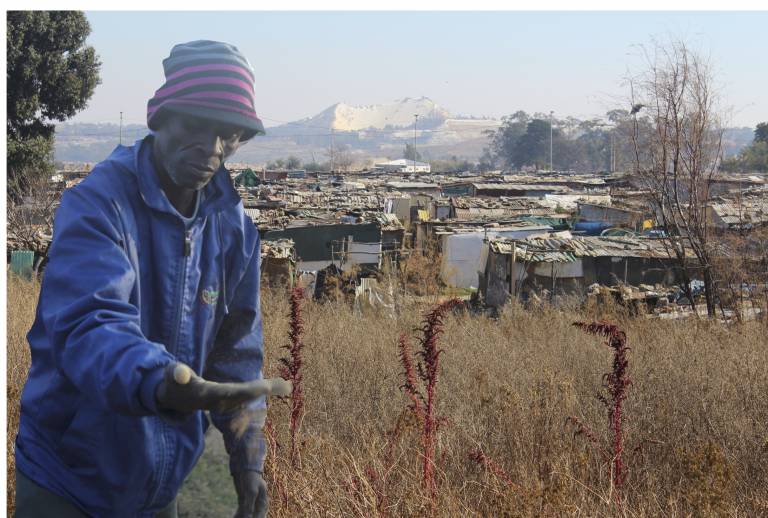IAS Waste: Inside-Out Earth - Residues of the Anthropocene in Africa
23 October 2019, 5:15 pm–7:15 pm

The IAS is delighted to welcome Prof. Gabrielle Hecht, Stanford University, for this talk. Andrew Barry (Geography, UCL) and Simukai Chigudu (International Development, Oxford) will provide responses.
This event is free.
Event Information
Open to
- All
Availability
- Yes
Cost
- Free
Organiser
-
Institute of Advanced Studies
Location
-
Gustave Tuck LTSecond Floor, South Junction, Wilkins building, UCLLondonWC1E 6BTUnited Kingdom
We are turning our planet inside out, releasing molecules and materials long trapped in the earth. Mining conglomerates descend kilometres underground to extract metals that power electronics, making mountains of unwanted rocks. Dredgers scoop sand from sea beds to terraform military bases and luxury islands. Offshore oil erupts, leaks, flows, combusts. All that was buried melts into air, seeps into waterways, settles on soils, and penetrates bodies.
But who is “we”? While the Anthropocene continually inscribes itself in all our bodies – we all have endocrine disruptors, microplastics, and other toxic things chugging through our metabolisms – it manifests differently in different bodies. Those differences, along with the histories that generated them, matter a great deal. This talk digs into the entangled residues of mining, apartheid, and contemporary inequalities on South Africa’s Rand plateau, which encompasses Johannesburg, Soweto, and hundreds of kilometers of abandoned mine tunnels. How do toxic residues inflect politics in the “hollow Rand”?
Bio
Gabrielle Hecht is Frank Stanton Foundation Professor of Nuclear Security at Stanford University, Professor of History, and a Senior Fellow at the Freeman Spogli Institute. Her most recent monograph, Being Nuclear: Africans and the Global Uranium Trade (MIT Press, 2012) offers new perspectives on the global nuclear order by focusing on African uranium mines and miners. It received several awards for its contributions to African history, science and technology studies, and the humanities.
All welcome. Please note that there may be photography and/or audio recording at some events and that admission is on a first come first served basis. Please follow this FAQ link for more information. All our events are free but you can support the IAS here.
 Close
Close

